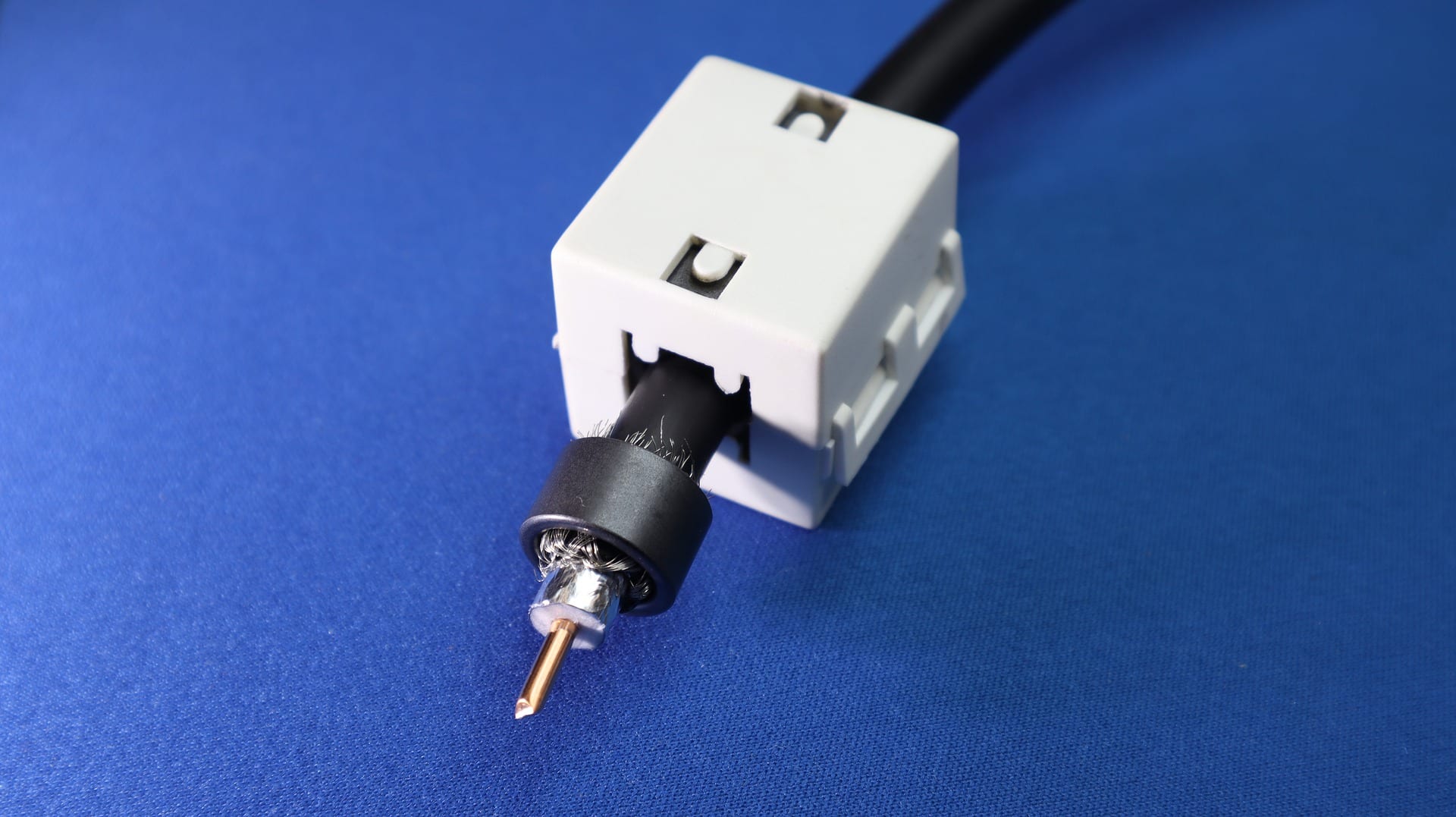Coaxial Cables
Coaxial cables are a type of electrical cable that’s used as a transmission line for radio frequency signals. They’re used in various applications for your home or office because of their high-level transmission and reception capabilities. Some of the applications they’re used in are broadband ethernet cabling, cable television, commercial radio, high-speed computer data, and telephone communication. Since there are many different uses for coax cables, there are quite a few different types of coax cables and all are designed based on their use. Take a look below to learn about the various coax cables and what they’re used for.

Hardline
Hardline cables typically have a larger diameter than other types of coaxial cables. This is because they use a center conductor, made from either copper, silver, aluminum, or steel, which provides a high-strength signal transmission. Often, these types of cables are used in applications such as military signals, radio transmitters, and aerial receivers due to their heavy-duty quality. And in order to prevent arcing, some hardline cables use pressurized nitrogen to keep moisture out.
RG-6
The “RG” in RG-6, stands for “radio guide” which refers to the capacity of the cable. This is probably the most common coaxial cable among the group and they’re typically used in homes and offices for relaying cable television and other high-definition signals. Certainly RG-6 cables have the ability to be used for high-definition signals and are a popular choice to use in homes as they outperform weaker RG-5 cables. The RG-6 cables can be made with copper-clad steel or bare solid copper in the center and are available in four application variations:
- Plain: used for standard indoor or outdoor house wiring.
- Flooded: used in underwater conduits because of the added water-blocking gel surrounding the cable.
- Messenger: used to bear the tension of an aerial drop of a utility pole thanks to its steel wire.
- Plenum: safe for vent ducts due to the Teflon-based outer jacket designed to meet fire regulation codes that surround the cable.
 Rigid Line
Rigid Line
Rigid line cables are stiff and unable to bend just as their name suggests. They contain two mounted copper tubes which are at fixed intervals across the length of the cable while using PTFE supports or disk insulators. Because rigid lines are designed to be straight and at a fixed length, they are often combined using connectors or couplings to join the lines together. The connectors range from 45-90 degree elbows and special braces and springs are also used to provide more expansion and some flexibility. These lines have strong power capacities which are often used to operate TV and FM frequencies.
Semi-Rigid
Semi-rigid cables are designed to be formed and bent, but once the cable is flexed, they’re not intended to be reformed. They’re created using a solid copper sheath on the outside and a dielectric of PTFE. The copper sheath allows for stronger shielding and the dielectric properties provide enhanced high-frequency performance. And unlike rigid lines, semi-rigid cables are limited in size.
Twinaxial
The twinaxial coax cable is unique from traditional cables because it contains two central conductors in the core instead of the single conductor design. Also, the twinaxial cable has a single outer core and dielectric. They’re best suited for use with low-frequency digital and video applications. Some of the advantages of using twinaxial cables are:
- Reduction in cable loss
- Better protection from ground loops and fields
- Reduced low-frequency magnetic noise
Triaxial
In a triaxial coax cable, an extra copper braid is added to the structure of the cable. The braid acts as a shield because it’s grounded. Thus, it moves any ground loop currents or field noise away from the inner core elements. These types of cables provide various advantages such as:
- Increased bandwidth
- Higher interference rejection
- Better signal-to-noise ratio
- Reduction in cable losses and loading
Connect with DataComm Nevada
DataComm Nevada is a network cabling company that specializes in technology infrastructure and provides high quality yet affordable technology solutions. Our expert cabling specialists have the knowledge and passion to tackle any wiring project thrown our way. We offer quality wiring services and 100% customer satisfaction. Connect with us for a free estimate!
 Rigid Line
Rigid Line